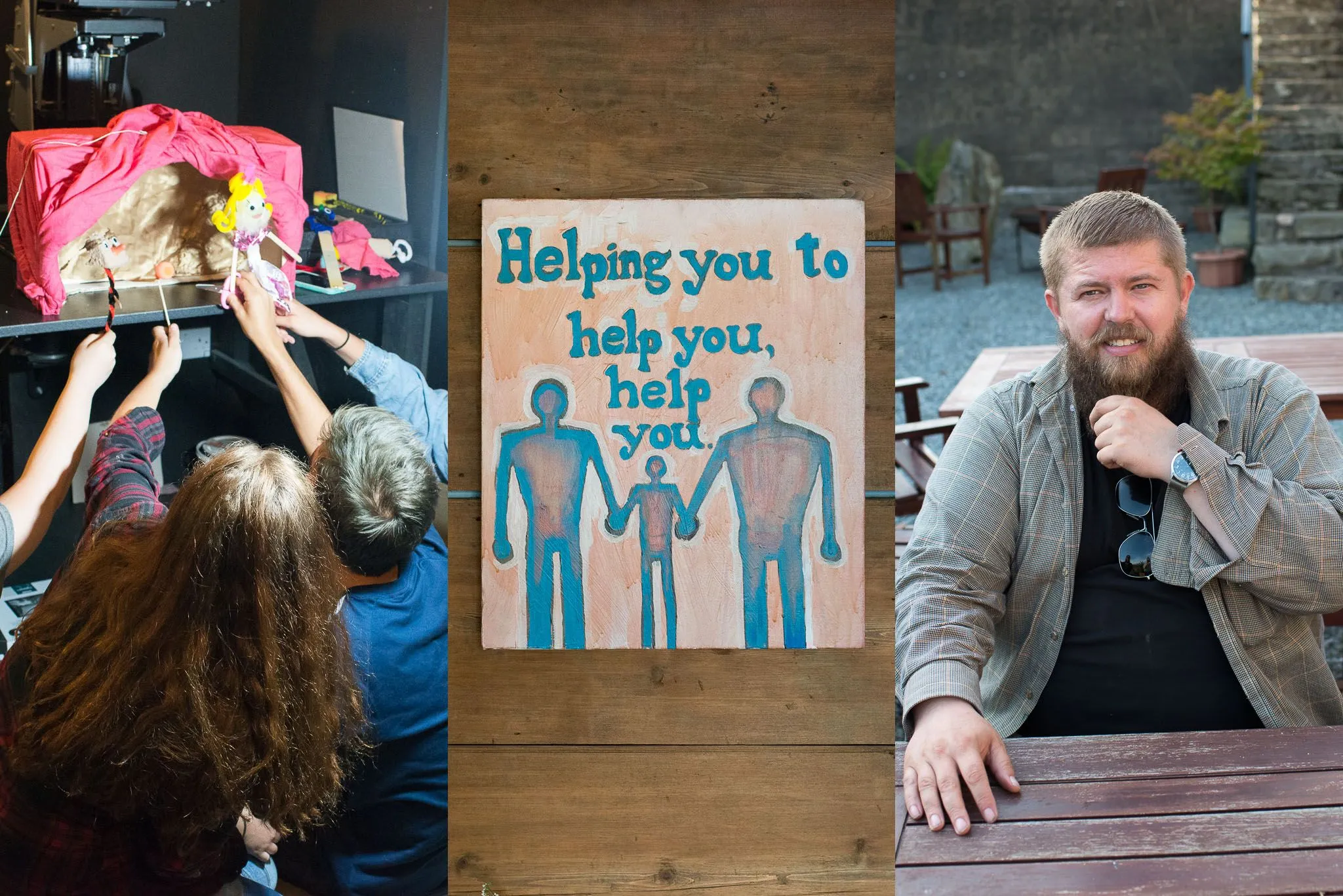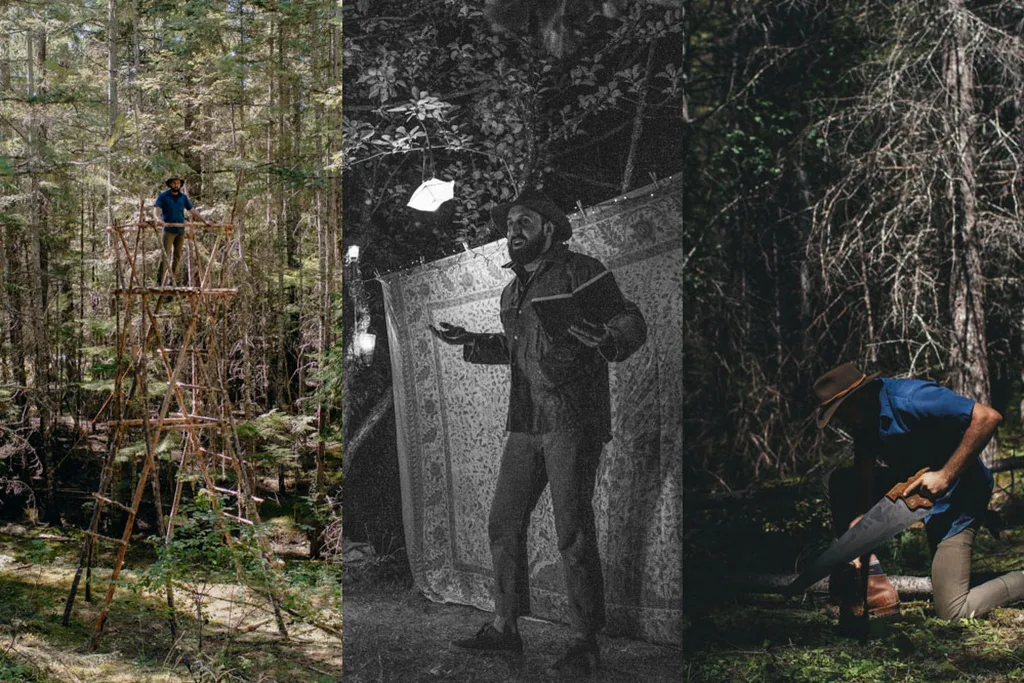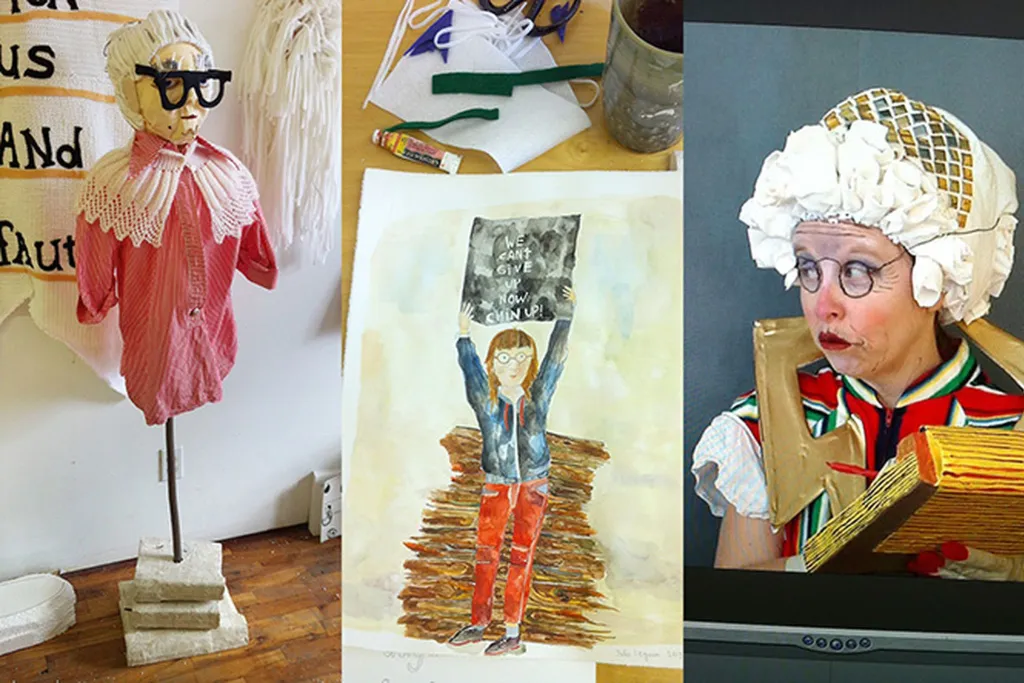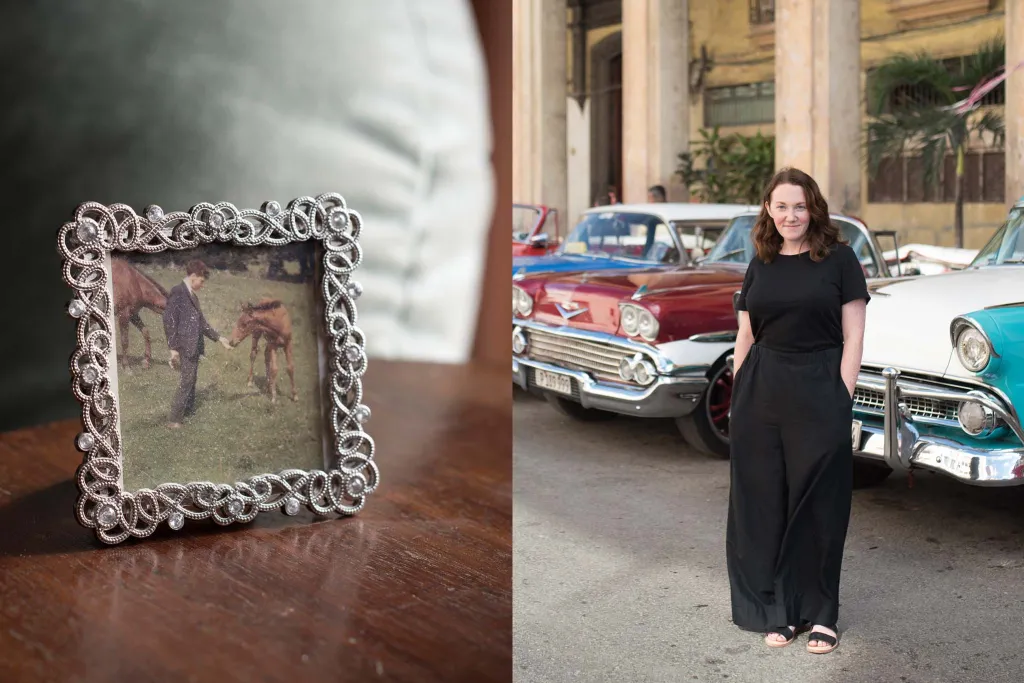Haden Nicholl

Haden is one of our dearest friends. His painting, proclaiming “helping you to help you help you”, is among the first things our guests see when they arrive at Cow House. It has become something of a slogan for the studios. Rosie and Frank met Haden back in graduate school and have stayed close ever since. He was one of our first residency artists and came back two years in a row to teach during our Summer Arts Program; Art on the Farm where his sense of humour, intelligence and honesty won him favour with our students. Haden lives in his native Colorado and has been working on a long-term project to develop a home, studio and residency program remotely located in the Rocky Mountains.
CHS: During your time in the studio this summer you made a series of drawings that were nonsensical, confusing multiple choice or fill in the blank tests. Many of us, students and teachers alike, filled them in but you also chose to leave some blank. How are you thinking about this work now? Have you continued to make new tests?
HN: I have continued making tests, I really enjoy them and I like to think about how each can be interpreted as well as what they reveal about the test taker. Everything we do, all the choices we make are based on our psychological proclivities. The tests create an abstract stimulus that personalities react to concretely which reveals their “shape”.
CHS: You received your Bachelor’s degree in Psychology and worked in the field for over ten years. How has this knowledge and your professional experience influenced your work?
HN: The degree and experience have allowed me to interpret data and create tests that function. I like to think of myself as a researcher that doesn’t answer to a board or institution. I have also absorbed the clinical aesthetics and jargon that comes from collecting the ephemera of adolescent psychiatric wards and being exposed to a pervasive therapeutic environment.
CHS: You recently made a big move from San Francisco back to Colorado. You now own a piece of land remotely located in the high planes, surrounded by mountains, about two hours from Denver. What are your plans for this beautiful property? What have been the challenges and rewards of moving from the city to the countryside?
HN: With the property, I plan to start small and keep it simple. Eventually, I would like to have an artist residency but right now I just want to get it set up for year round living. It has been a strange transition. The stuff that I thought would be hard isn’t and the stuff I thought would be easy isn’t. It’s also taken more planning because I changed some building plans and went in another direction. I love being out there, it’s just going to take a little longer than I thought. I think being in the country would have been harder if this wasn’t my home state and near my family.
CHS: You have developed an interest in bookmaking and will be attending the Denver Independent Comic & Art Expo to showcase some new work. How does this new format suit your practice? Is making zines something you plan to continue into the future?
HN: I like the simplicity and autonomy of it. It’s also something that doesn’t cost much to do so I can make lots of issues. I also like the political and social baggage that comes with zines, pamphlets and comics it’s something that I plan to play with in the pieces I make. I do have to think differently when making work for the issues, it’s definitely different than what I’m used to. I’ve found that I’ve had to focus on making pieces tighter and sequential in order to make a “book” format which for me is hard.
CHS: As one of our first residency artists, you were here at the very earliest stages of Cow House. More recently, you taught during our summer program Art on the Farm. In your view, how has the place changed, what remains the same?
HN: The biggest change I have noticed is the expansion and growth of Cow House. When I first came it was super simple, Fall is the time for the artist residencies and Summer is the time to teach art. Now, it seems to me that you guys have created a place that is much more than that. Beyond the expansion of residencies, artistic programming and teaching opportunities you have created a reciprocal relationship with the artistic community. I believe that kind of relationship is what allows artistic institutions to thrive. What hasn’t changed for me is the ease with which I can create work, for me, it’s like magic. Every time I show up, a week to shake out the sillies and then I’m cruising. The last two weeks I slow down because I’m thinking of leaving and organising my trip home. It’s just so easy for me to really focus at Cow House and I think it will just always be like that.


